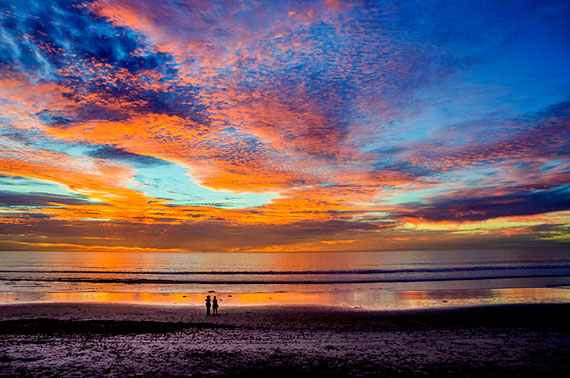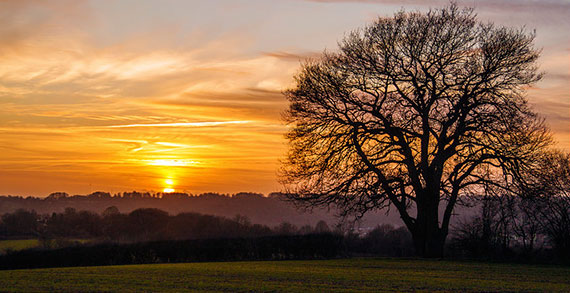Landscape photographs are among the most beautiful photos you can produce. But it isn’t easy! To get decent results, you have to know, understand — and follow — tons of rules. Individually, none of them are a very big deal, but they combine to create powerful landscape photos. Today’s two photo tips are each another of those little steps to greatness.
1. Make Sure Your Horizon Is Straight
This seems so basic as to be almost unworthy of mention, but it is amazing how often the horizon line is not straight. True, when you’re shooting a mountainous scene (with hills, valleys and so on), it can sometimes be difficult to determine just where the horizon is. But you have to find it and make it level. It becomes more obvious when you’re looking at a photo of the ocean. That horizon absolutely must be level, and frequently, it isn’t. It’s a bit disconcerting to see it sloping to one side. Is the ocean pouring out of the frame?
It only takes a second; double check and make sure your horizons are level.
2. Make Sure Your (Straight) Horizon Is Not Dead Center
You need a “star” for the viewer’s eye to settle on. This rule is easier to violate than the level horizon one — and it is violated right and left! Having the horizon in the center of the frame feels right, while having it off center is counter intuitive. But it’s a compositional must. When the horizon divides the photo in half, it’s very static and boring. There is no excitement or drama. The viewer doesn’t know what’s important and what they should focus their attention on. The sky or the ground? Where should they look?
Any contest-winning photograph needs a “star.” In this case, what is the star? Is it the sky? Did you want to show the viewer the dramatic clouds with golden light kissing the bottom? If so, lower the horizon to about the bottom third of the frame and make the sky the star.

Photo by Markus; ISO 800, f/7.1, 1/60-second exposure.
Is the star the ground? Did you want to draw attention to some natural feature or possibly a placid lake? Raise the horizon to about the top third of the frame and accent the ground.

Photo by Amateur with a Camera; ISO 100, f/2.8, 1/125-second exposure.
There was something that caught your eye when you decided to take the shot. What was it? Make sure to raise or lower the horizon to make it the star, then make sure the horizon is level. These two photo tips will help you become the best landscape photographer in your area.
About the Author:
Dan Eitreim writes for OnTargetPhotoTraining. He has been a professional photographer in Southern California for over 20 years. His philosophy is that learning photography is easy if you know a few tried and true strategies.
Like This Article?
Don't Miss The Next One!
Join over 100,000 photographers of all experience levels who receive our free photography tips and articles to stay current:







Leave a Reply